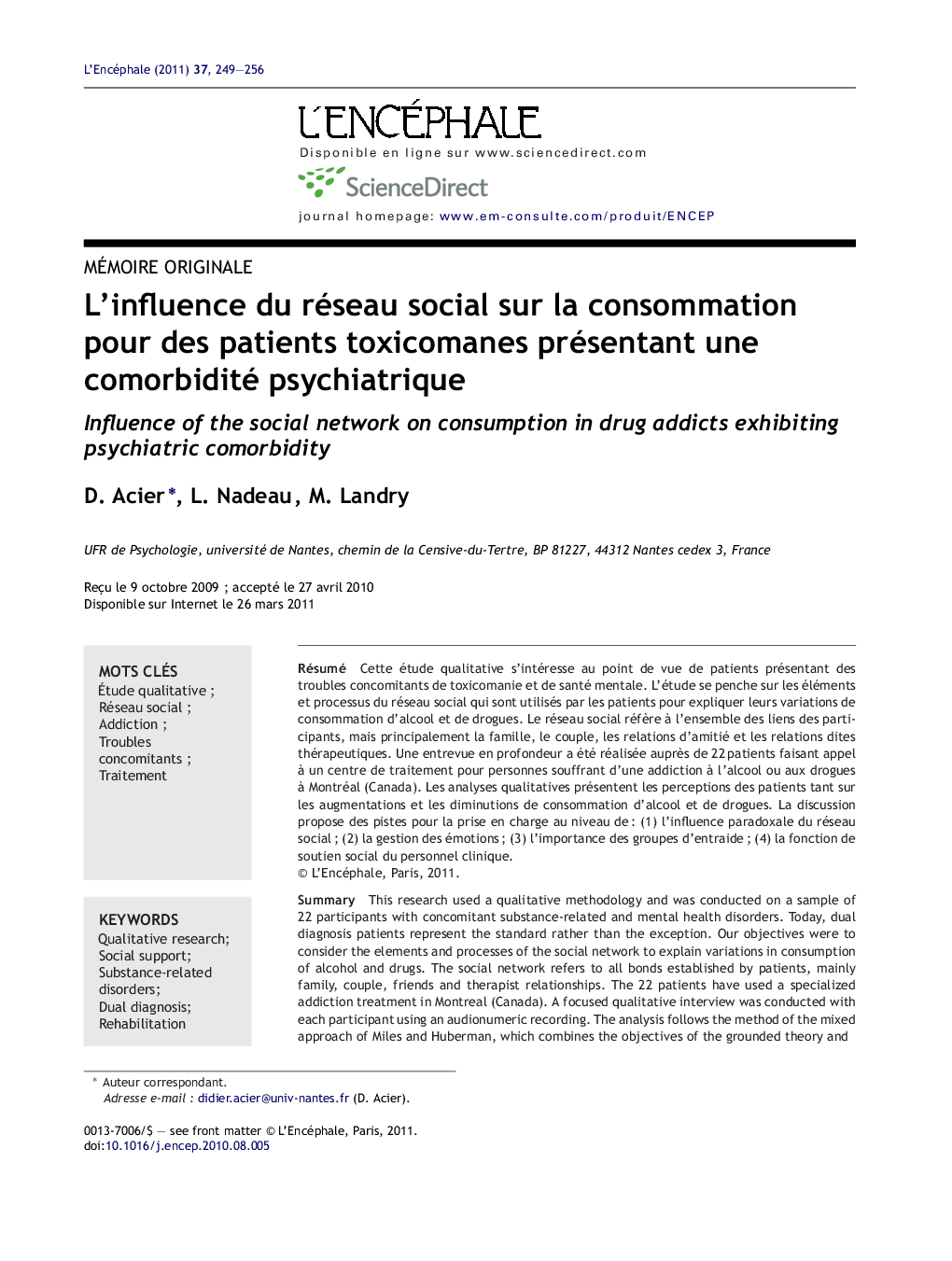| کد مقاله | کد نشریه | سال انتشار | مقاله انگلیسی | نسخه تمام متن |
|---|---|---|---|---|
| 4182116 | 1277165 | 2011 | 8 صفحه PDF | دانلود رایگان |
عنوان انگلیسی مقاله ISI
L'influence du réseau social sur la consommation pour des patients toxicomanes présentant une comorbidité psychiatrique
دانلود مقاله + سفارش ترجمه
دانلود مقاله ISI انگلیسی
رایگان برای ایرانیان
کلمات کلیدی
موضوعات مرتبط
علوم پزشکی و سلامت
پزشکی و دندانپزشکی
روانپزشکی و بهداشت روانی
پیش نمایش صفحه اول مقاله

چکیده انگلیسی
This research used a qualitative methodology and was conducted on a sample of 22 participants with concomitant substance-related and mental health disorders. Today, dual diagnosis patients represent the standard rather than the exception. Our objectives were to consider the elements and processes of the social network to explain variations in consumption of alcohol and drugs. The social network refers to all bonds established by patients, mainly family, couple, friends and therapist relationships. The 22 patients have used a specialized addiction treatment in Montreal (Canada). A focused qualitative interview was conducted with each participant using an audionumeric recording. The analysis follows the method of the mixed approach of Miles and Huberman, which combines the objectives of the grounded theory and the ethnography. All the interviews were transcribed then coded and analyzed with QSR N' Vivo 2.0. The method uses an iterative process making a constant return between verbatim and codes. The qualitative analyses present patients' perceptions on the increases and reductions in alcohol and drug consumption. Family network refers to participants where the family is named as supporting a decrease in drug consumption: couple network refers to intimate relations supporting a decrease in consumption. Mutual help network refers to alcoholics anonymous (AA) or other self-help groups. Several verbatim have been included. We propose strategies for the substance abuse treatment centers based on: (1) the paradox influence of the social network and the importance of clinical evaluation of patients of social networks; (2) emotions management, especially negative feelings, which include training of feeling, recognizing and naming, ability to the express and communicate to others; (3) importance of groups of mutual aid providing periods of sharing, validating individual experiences and pushing away loneliness; (4) function of social support of the clinical professionals as substitute of an overdrawn network.
ناشر
Database: Elsevier - ScienceDirect (ساینس دایرکت)
Journal: L'Encéphale - Volume 37, Issue 4, September 2011, Pages 249-256
Journal: L'Encéphale - Volume 37, Issue 4, September 2011, Pages 249-256
نویسندگان
D. Acier, L. Nadeau, M. Landry,